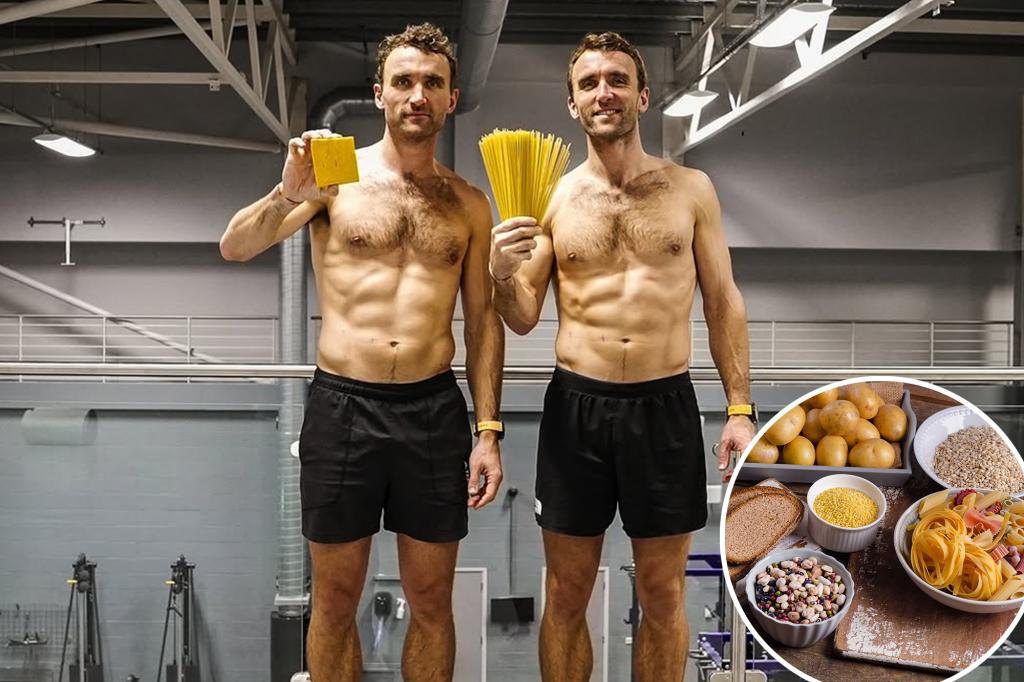The Great Diet Debate: High-Fat vs. High-Carb, Which Reigns Supreme?
For decades, the fitness community has been divided over the age-old question: is a high-fat or high-carb diet the ultimate fuel for optimal health and performance? This debate has sparked countless discussions, experiments, and even challenges among fitness enthusiasts and scientists alike. Recently, a unique experiment involving identical twins put this debate to the test, offering surprising insights into how these diets impact fitness, energy, and overall health.
The Twin Experiment: A Scientific Showdown
To settle the debate, a pair of identical twins, Ross and Hugo Turner, both 36-year-old professional adventurers from the UK, embarked on a 12-week dietary experiment. The brothers, who share 99% of the same DNA, followed two vastly different meal plans: Hugo adopted a high-fat diet, while Ross stuck to a high-carb regimen. Both consumed approximately 3,500 calories per day, including three meals, two snacks, and 350-calorie protein shakes provided by a food delivery service called Frive. Hugo’s meals were rich in fats like olive oil, butter, nuts, eggs, and avocado, whereas Ross’s diet focused on carbs such as pasta and rice, with minimal fat intake. Their workouts were identical, consisting of cardio and strength training with home gym equipment, with rest days every three days. Sports scientists from the University of Loughborough monitored their progress closely.
The Results: Surprising Outcomes
After 12 weeks, both brothers saw improvements in fitness and leanness, but the differences in their results were striking. Ross, on the high-carb diet, gained 2.2 pounds of muscle and lost 2 pounds of fat. His cholesterol levels improved, and his visceral fat decreased from 11.5% to 11.1%. Visceral fat, the dangerous fat stored around internal organs, is linked to chronic diseases like heart disease and type 2 diabetes, so this reduction was a significant health win for Ross. On the other hand, Hugo, who followed the high-fat diet, gained 6.6 pounds and lost only 0.6 pounds of fat. His cholesterol levels remained unchanged, and his visceral fat increased from 11.4% to 12.6%. While both brothers saw nearly identical improvements in strength tests, Hugo struggled with cardiovascular fitness and endurance, a critical factor for individuals prioritizing overall fitness and long-term health.
The Twins’ Experience: Hunger, Satisfaction, and Energy
The brothers’ personal experiences during the experiment revealed another layer of the high-fat vs. high-carb debate. Hugo, who consumed a high-fat diet, admitted to feeling constantly hungry despite eating six times a day. He described never feeling full or satisfied, which left him in a state of persistent hunger. However, he noted that he avoided the energy crashes typically associated with high-carb diets. In contrast, Ross, who followed the high-carb plan, reported feeling full but missed the texture and satisfaction of high-fat foods. He occasionally indulged in a small piece of dark chocolate to curb his cravings. Steven Harris, a performance physiologist at Loughborough University who worked with the twins, noted that while both brothers improved their cardiovascular fitness and metabolic health, Ross’s high-carb diet seemed to give him the edge in energy and endurance, particularly during the final tests.
Beyond the Experiment: The Bigger Picture of Diet Trends
This experiment is not the first time the Turner brothers have tested the boundaries of fitness and nutrition. In the past, they have explored topics such as the effectiveness of longer workouts versus short bursts of exercise and the impact of vegan versus omnivorous diets on muscle mass and chronic disease biomarkers. Their latest experiment coincides with the growing popularity of restrictive diet plans like keto, the Super Carb Diet, and Whole30. These diets, which often limit entire food groups, promise rapid weight loss and other benefits. However, research suggests that such "fad" diets may not be the most sustainable or healthy long-term solutions. In fact, a 2023 study by researchers from Nagoya University Graduate School of Medicine in Japan found that extreme diets reducing either carbs or fats drastically are linked to higher all-cause and cancer-related mortality. This raises important questions about the risks of extreme dietary restrictions and the importance of a balanced approach to nutrition.
The Verdict: No One-Size-Fits-All Solution
The results of the Turner brothers’ experiment highlight the complexity of nutrition and fitness. While restrictive diets may yield short-term results, they often come with trade-offs, whether it’s constant hunger, reduced energy, or negative impacts on long-term health. The experiment also underscores the importance of individual differences in how people respond to different diets. What worked for Ross may not work for Hugo, and vice versa. This aligns with the broader consensus among experts: there is no one-size-fits-all approach to nutrition. Instead of embracing extreme diet plans, the focus should be on creating a well-balanced diet that supports all body functions, from the immune system and cognitive function to heart health and mental well-being. For those looking for guidance, the Dietary Guidelines for Americans provide a useful starting point, offering recommendations on daily nutrient intake for the average person.
Conclusion: The Path to Sustainable Fitness and Health
The Turner brothers’ experiment offers a valuable lesson: the key to sustainable fitness and health lies in moderation and balance, not in extreme dietary restrictions. While restrictive diets like keto or Whole30 may work for some, they are not the answer for everyone. By understanding individual needs, listening to our bodies, and focusing on a diverse, nutrient-rich diet, we can create a sustainable path to better health and performance. As the fitness community continues to explore the complexities of nutrition, one thing is clear: the journey to optimal health is deeply personal, and there is no single "ultimate" fuel for everyone.












